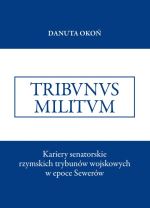Dear Colleagues,
As part of the ongoing series of online lectures celebrating the 75th anniversary of FIEC (full program available at www.fiecnet.org/75-years-fiec), we are pleased to invite you to the next lecture :
Professor Marietta Horster (University of Mainz/Germany)
Roman Cities – a world of (inscribed) texts
November 13th, 2024, at 7 pm CET (Central European Time)
https://us06web.zoom.us/j/82592407228?pwd=TipcgY1nNbgNcS8dCc3YKaBvCNdVBs.1
Abstract
The lecture will give insights into current research on epigraphy, more specifically on the study of inscribed and painted texts visible in urban spaces. These texts include inter alia the famous building inscription on the Pantheon in Rome, inscriptions regarding election campaigns in Pompeii and inscribed objects for the worship of the gods that were displayed in sanctuaries and other places all over the empire. The lecture will deal with these and other contexts in which inscriptions played a role in such inscribed “city-scapes” and influenced people’s perception of Roman cities.
Since 2010, Marietta Horster has been holding the Chair of Ancient History at Mainz University. Her research focus is the organisation of Greek and Roman cults, Roman imperial and late antique administration, organisation and prosopography, the transfer of knowledge and the transmission of textual culture in the ancient world. After her studies in Lausanne, Bonn and Cologne, she obtained her doctoral degree in 1995 at Cologne University with a dissertation entitled “Bauinschriften römischer Kaiser. Untersuchungen zu Inschriftenpraxis und Bautätigkeit in Städten des westlichen Imperium Romanum in der Zeit des Prinzipats.“ In her habilitation (University of Rostock, 2003) she researched on “Landbesitz griechischer Heiligtümer in archaischer und klassischer Zeit“. Since 2018 she is director of the Corpus Inscriptionum Latinarum of the Berlin-Brandenburgische Akademie der Wissenschaften and is currently coordinating an EU-Innovative Training Network of 11 doctoral students on inscribed poetry as a part of popular culture in the Roman imperial period (ITN: CARMINA).
All interested are welcome!
Yours sincerely,
Thomas Schmidt
FIEC Secretary General



Dodaj komentarz